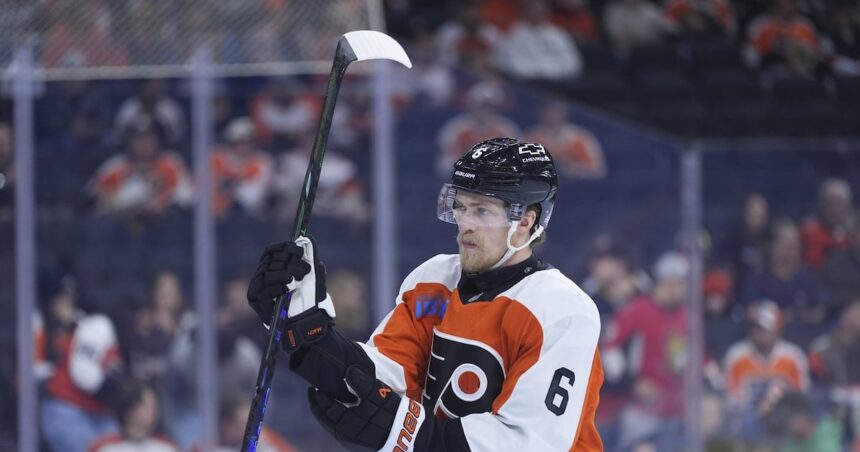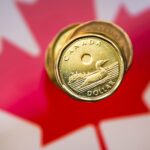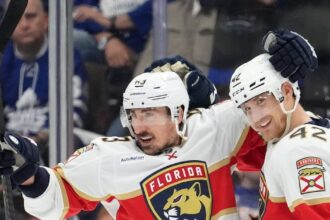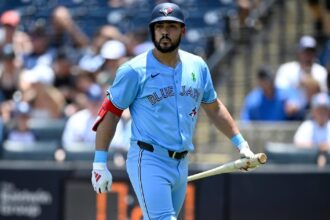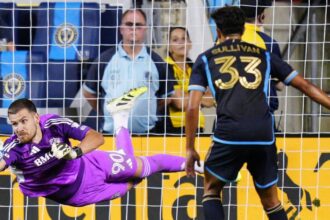The ice has barely settled on the new NHL season, yet for dozens of players across the league, every shift, goal, and defensive play carries extra weight. The clock is already ticking toward the 2026 Winter Olympics in Italy, where NHL stars will return to Olympic competition for the first time since 2014. For established superstars like Connor McDavid or Auston Matthews, Olympic roster spots are all but guaranteed. But for those on the bubble, these opening months of the season represent a critical audition on hockey’s biggest stage.
“It’s been a big dream of mine since I was a kid,” says Philadelphia Flyers defenseman Jamie Drysdale, who hopes to crack Canada’s impossibly deep roster. “Growing up watching the Olympics, seeing NHL players represent their countries—that’s something special that stays with you.”
The Olympic qualification picture is particularly intriguing this season because NHL participation creates a unique dynamic where players are simultaneously teammates and Olympic rivals. In locker rooms across North America, Canadians, Americans, Swedes and Finns are battling for NHL victories together while quietly building their Olympic résumés against one another.
For Ottawa Senators captain Brady Tkachuk, who narrowly missed Team USA’s roster for the 4 Nations Face-Off tournament, the motivation is clear. “You want to show what you can bring to the table,” Tkachuk explains. “The guys making these decisions are watching every game, so consistency is everything.” His strong start this season—showcasing both his scoring touch and physical presence—has already strengthened his case for wearing the stars and stripes in Milan-Cortina.
The competition is especially fierce for Canadian hopefuls. With a talent pool so deep that multiple all-star caliber players will inevitably be left home, players like Vancouver’s J.T. Miller understand the challenge. “Canada could probably field three competitive teams,” Miller says. “So you can’t just be good—you have to be exceptional and bring something unique that the team needs.”
National team executives confirm that these early season performances matter significantly. “We’re evaluating players in all situations,” notes one Team Canada scout who requested anonymity. “Can they kill penalties? Play power play? Adapt to different roles? The NHL season gives us the perfect laboratory to see who thrives under pressure.”
What makes this Olympic cycle particularly compelling is the blend of established veterans and emerging young talent. Players like Pittsburgh’s Sidney Crosby, who scored the “golden goal” for Canada in 2010, could potentially play in their fourth Olympics, while a new generation led by rookies and sophomores push for consideration.
For European players, the Olympic spotlight often carries additional significance. Countries like Sweden, Finland, and Czechia view hockey as a matter of national pride, and their NHL representatives shoulder those expectations. “In Sweden, Olympic hockey unites the entire country,” explains Vancouver defenseman Erik Brannstrom. “Playing for Tre Kronor would be the highest honor.”
Beyond individual achievements, many players recognize that Olympic participation could be transformative for hockey’s global footprint. The game’s growth in non-traditional markets often accelerates following high-profile international tournaments where new fans discover the speed and skill that make hockey unique.
As CO24 Culture has previously explored, sports remain one of the few truly unifying cultural experiences in our increasingly fragmented media landscape. The Olympics magnify this effect, creating memories that transcend the sport itself and become part of national identities.
For players on the bubble, the pressure can be both motivating and overwhelming. Sports psychologists working with NHL teams have noted an uptick in performance anxiety specifically related to Olympic selection. The balance between playing for one’s NHL team while auditioning for Olympic duty creates a complex psychological dynamic that the most successful players learn to navigate.
The road to Milan-Cortina will be paved with highlight-reel plays, clutch performances, and inevitable disappointments. Some early-season standouts will fade, while slow starters might surge at the perfect moment to capture selectors’ attention. This Olympic subplot adds another layer of intrigue to an already compelling NHL season—a season where every game could potentially change the trajectory of a player’s career.
As fans, we’re the fortunate beneficiaries of this heightened competition. Players giving maximum effort night after night, elevating their games knowing that Olympic decision-makers are watching closely. When the final rosters are announced next year, the selections will reflect not just talent, but the mental fortitude required to perform consistently under the microscope of international scrutiny.
For now, players like Drysdale, Tkachuk, and dozens of others can only control what happens on the ice each night—letting their play make the case for Olympic inclusion one shift at a time. The dream that began on frozen ponds and in local rinks continues to drive them toward what would be, for many, the pinnacle of their hockey careers.
In the words of one Olympic hopeful: “Some kids grow up dreaming about the Stanley Cup. Others dream about Olympic gold. The truly lucky ones get to chase both.”

